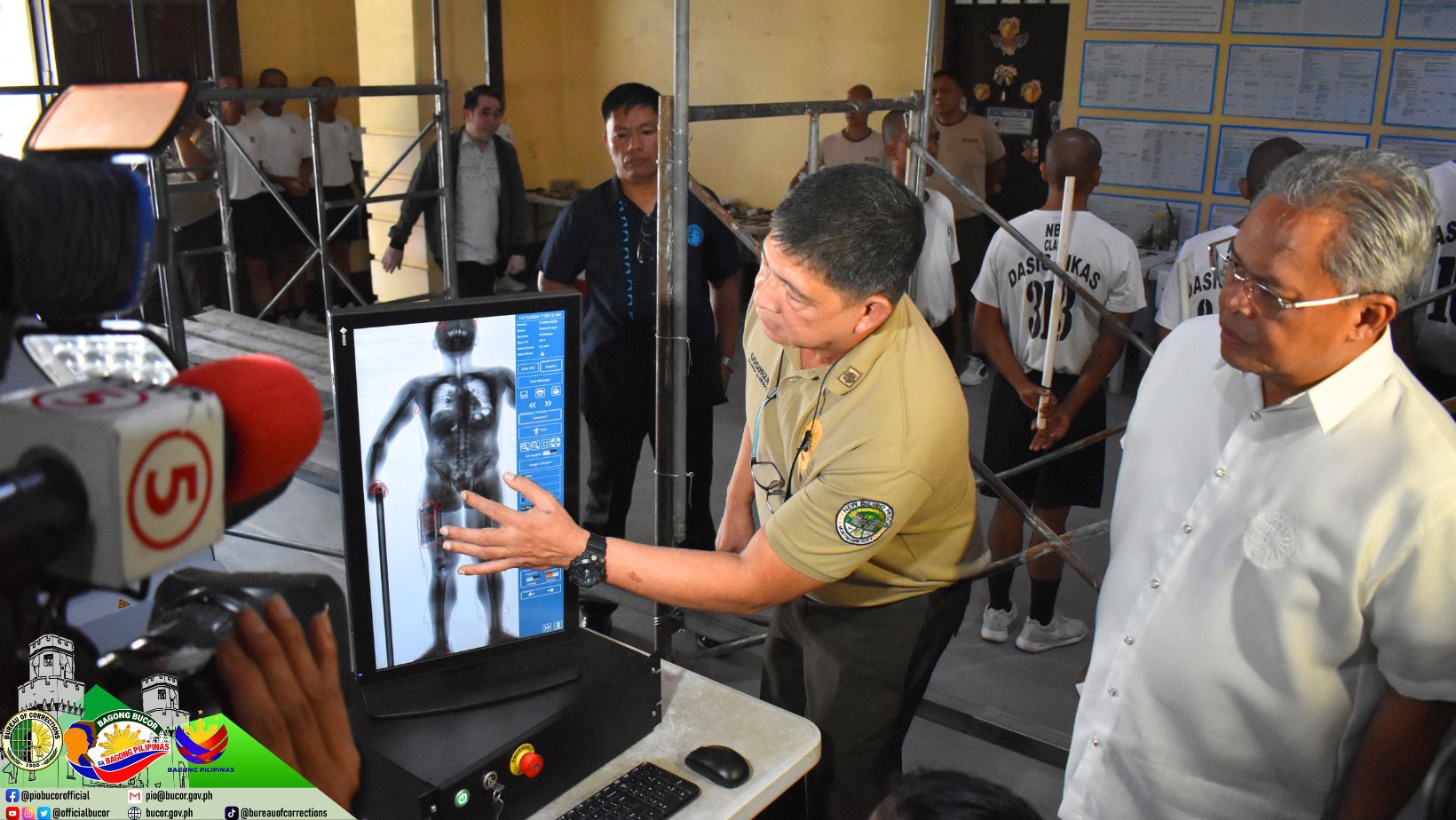
By Benjamin Pulta | Philippine News Agency
The Bureau of Corrections (BuCor) on Wednesday deployed two high-tech full body scanners that would eliminate the need for manual strip searches.
The two new Soter RS full-body scanners can detect any kind of unauthorized items hidden within the human body.
“We have decided to deploy these body scanners, the first in the Philippines, initially at the entrance of the National Headquarters’ Administrative Building, and the Inmate Visiting Services Unit of the Maximum-Security Camp in New Bilibid Prison. This will eliminate the need for strip searches and manual cavity checks on visitors of persons deprived of liberty (PDLs),” Bucor Director General Gregorio Pio Catapang Jr. said.
He said the advanced scanners could identify items ingested, hidden under clothing, or concealed inside their private parts.
“We plan to procure additional scanners for deployment across our prisons and penal farms nationwide,” Catapang added.
In May, the BuCor chief discontinued strip and cavity searches on visitors of PDLs after receiving complaints from two wives of prisoners, leading to a review of procedures in cooperation with the Commission on Human Rights.
He clarified that BuCor implemented strip and cavity searches due to an uptick in visitors attempting to smuggle contraband into correctional facilities, such as cellphones, chargers, tobacco, and illicit drugs hidden in various body parts.
Meanwhile, Catapang said the BuCor is seriously undertaking efforts to crack down on illegal drugs following the directive of President Ferdinand R. Marcos Jr. for an intensified “bloodless drug war.”
The Department of the Interior and Local Government (DILG) earlier said that about 200 high-profile inmates at the New Bilibid Prison (NBP) in Muntinlupa City would be transferred to a new “maximum-security facility somewhere in the Philippines.”
This developed after Justice Secretary Crispin Remulla, Philippine National Police (PNP) chief Gen. Rommel Francisco Marbil, and Philippine Drug Enforcement Agency (PDEA) Director General Virgilio Lazo, in a meeting on Tuesday afternoon, identified that the “number one source of drug trade is apparently still inside the Muntinlupa jail.”
Catapang noted that 70 percent to 80 percent of the more than 52,000 PDLs nationwide are in prison due to drug-related cases.
Citing official reports, Catapang disclosed that from July 21, 2023 to Oct. 12, 2024, a total of 1,806 PDLs were transferred from the NBP to the Sablayan Prison and Penal Farm in Mindoro, which included 170 Chinese nationals mostly linked to drug-related cases.
